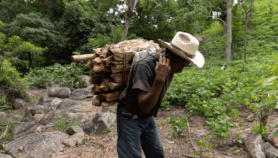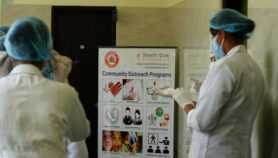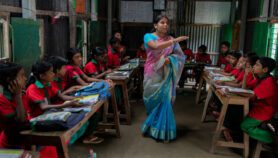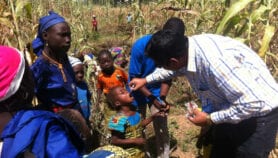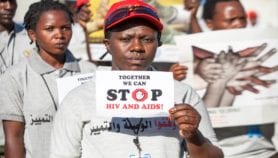25/11/19
Q&A: Countries need to prioritise which SDGs to pursue
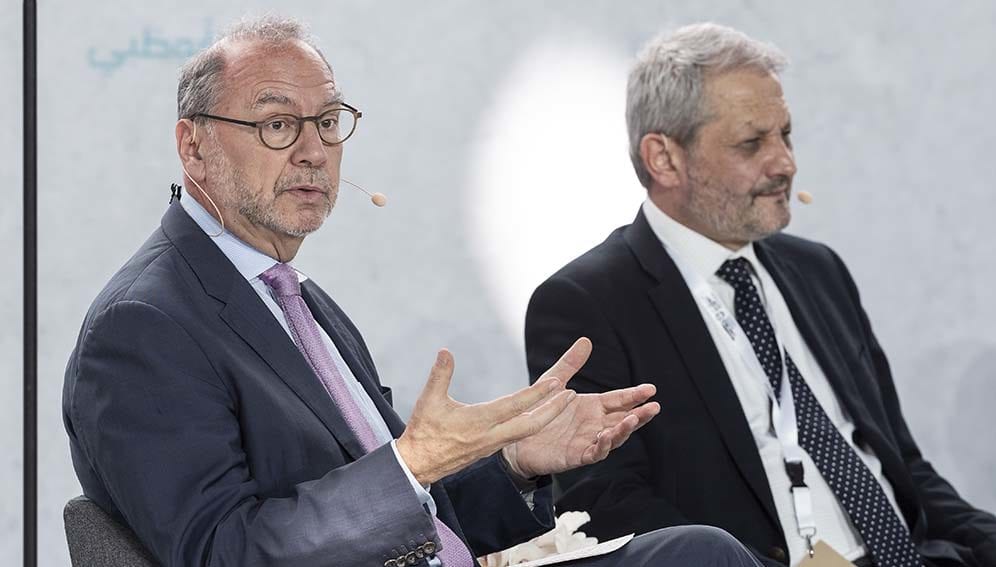
By: Ben Deighton
Send to a friend
The details you provide on this page will not be used to send unsolicited email, and will not be sold to a 3rd party. See privacy policy.
[ABU DHABI] Countries and institutions need to prioritise which Sustainable Development Goals (SDGs) they will focus on, according to Peter Piot, chairman of the board that governs the UK Collaborative on Development Research.
The SDGs were adopted by the United Nations in September 2015, and call for governments and organisations to achieve goals such as ending poverty, eradicating hunger and ensuring everyone has access to clean, affordable energy by 2030.
However, speaking on the sidelines of the Reaching the Last Mile Forum in Abu Dhabi, United Arab Emirates, on 19 November, Piot, who is director of the London School of Hygiene and Tropical Medicine, said there had been a collective over-optimism in setting the end date for so many goals at 2030.
What do you think about the SDGs? Are they structured in a way that is giving us the best results?
One point where I think we have been collectively over-optimistic is about ending so many things by 2030. Maybe we need to take a cold, hard look now that we are approaching 2020 when there are some mid-term or intermediary steps. For HIV, for example, we will not meet the 2020 goal that was less than 500,000 new infections of HIV [per year]. We are still at 1.7 million. It is nobody’s fault, it is just that it is difficult and so that is why I’m critical.
We must be careful that we don’t set ourselves up for failure and promise something that we can’t deliver. It becomes like Health for All by 2000 [the much maligned 1978 Alma-Ata declaration, criticised for being unrealistic].
We must be ambitious, definitely. And I definitely support that ambition and aspiration. I think for the meeting here, it is in a sense about more concrete things [countries pledged $2.6 billion to eradicate polio during the Reaching the Last Mile Forum]. Particular diseases definitely can be eliminated in particular counties. Worldwide, that is another story. So the difficulty for something like the SDGs is that you need one figure for the whole world, for China, for Abu Dhabi, for Argentina and for the UK. And that is an impossible exercise, but I understand why that is needed.
What needs to change? How can we approach the SDGs more effectively?
If I was in charge of a country, I would say ok, we are going to concentrate on [specific ones] and use that to bring people together. But in the health field, it is the difficult combination of delivering on the various disease elimination promises, or commitments. As we have seen with polio, it is not that easy. There is only one infection that has been eradicated in humans, it is smallpox, but many countries have eliminated malaria.
How do countries prioritise?
There are always trade-offs, in the sense of if we do 'A' there will be less money to do 'B'. I think these are political priorities that each country has to decide. I become more and more convinced that an overriding need for action on climate change in a pretty radical way should be a priority.
Do you agree with the President of the Democratic Republic of Congo (DRC), Félix Tshisekedi, when he says he is hopeful the Ebola epidemic will end in the next couple of weeks?
I hope he is right. We are still seeing one to two cases a day and when you come from a situation where sometimes there were 20 a day, it is really good news. But in past, smaller epidemics, one or two cases a day was panicking [people], it was bad, so let’s see.
I have become […] far more humble in terms of predicting what will happen based on experience. But on the positive side, I think that there are two things. One, the national response under the leadership of Professor [Jean-Jacques] Muyembe [who is coordinating the disease response in DRC] is now far better organised, far better integrated into the community. And two, we’ve got the vaccines, we have got the second vaccine [produced by Johnson & Johnson] so I’m cautiously optimistic, but myself I wouldn’t put a precise date on it.




